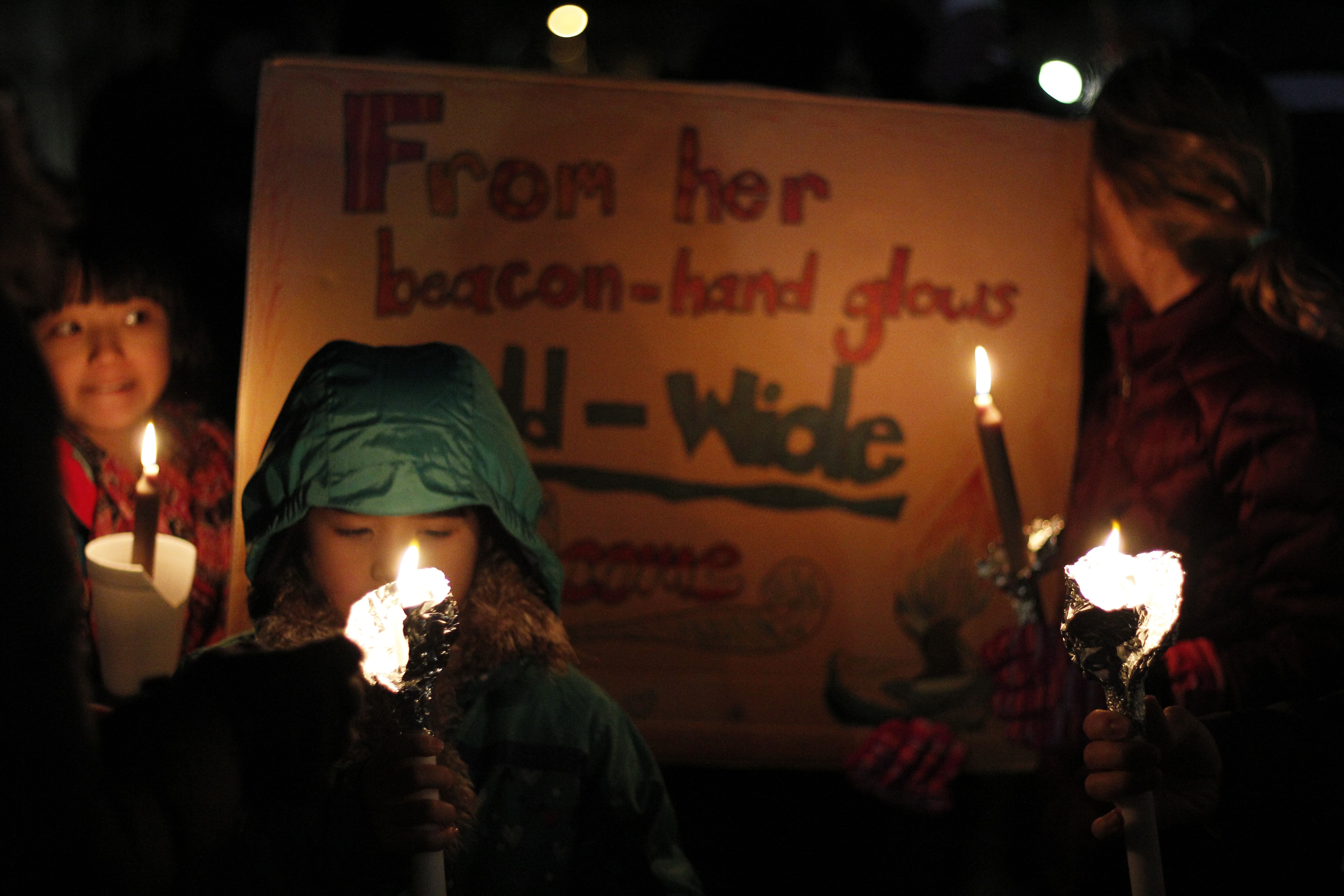
Four days after President Donald Trump’s Jan. 27 executive order, activist, religious and political communities in New Haven and Connecticut have expressed concern and determination to take action.
Trump’s ban on immigration for refugees and nationals of seven Muslim-majority countries spurred protests in major air cities and airports nationwide, as well as a vigil on Cross Campus last night, which more than 1,000 people attended.
Yet local religious leaders like Sheikh Mohamed Abdelati, the imam of the New Haven Islamic Center, are calling for further resistance to pressure Trump’s administration to completely reverse the executive order. Lauding the airport protests, Abdelati urged the public to carry on until the ban is lifted.
“[The executive order] is a restriction for this great country,” Abdelati said. “We are all humans and we have to stick together as humans.”
Other religious leaders in the Jewish and Christian communities, as well as U.S. Sens. Richard Blumenthal LAW ’73, D-Conn., and Chris Murphy, D-Conn., also expressed indignation at the new president’s executive order.
Abdelati also said he considers Trump’s traveling ban to be a grim warning for an increase in racism and hate crimes, citing a Sunday-night shooting at a mosque in Quebec City, Canada, that killed six people. Despite his respect for American political leaders and lawmakers, Abdelati said he disagrees with the current direction the country is headed in, adding that the rejection of refugees and immigrants is a “restriction on this great country” and that everyone in his Muslim community is scared and worried about the great uncertainty that lies ahead.
“But we believe that the future is in the hand of God, not even in the hands of the president,” Abdelati said.
Mongi Dhaouadi, the director of the Council on American-Islamic Relations Connecticut, said the order did not come as a surprise after the Islamophobic rhetoric Trump used on the campaign trail. But he said the order is a saddening, worrying and terrible policy.
Although the organization is still gathering information at this time, Dhaouadi said he is fairly confident if the number of affected residents is in the double or even triple digits.
Members of the Muslim community in Connecticut have come forward in tears with concerns about family members who are stranded overseas or are stranded in transit, he said. One individual with a green card was supposed to travel to Canada on a business trip, but had to cancel their plans in light of the order.
CAIR has been working with volunteer lawyers, including ones affiliated with Yale, to understand and summarize the orders and provide legal advice, Dhaouadi said. The organization is currently coordinating with New Haven’s mosques to plan an informational community meeting next week.
Rabbi Jon-Jay Tilsen of Congregation Beth El-Keser Israel said the ban has impacted members of the Jewish community as well. It has cut congregation members off from family members in targeted countries, he explained.
Beth El-Keser Israel has been involved in refugee resettlement in New Haven and assisted a family from Syria that arrived two days ago, just before the order took effect, he added.
In addition to the ban, Trump also plans to prioritize Christian asylum seekers in the refugee acceptance and resettlement process.
But Sister Jennifer Schaaf at Saint Thomas More, Yale’s Catholic chapel, noted that on a visit to Germany last October, Pope Francis claimed that one cannot be Christian and disregard Jesus’ teaching in the Gospel of Matthew, which calls for the public to feed the hungry and welcome the stranger. Schaaf also said the Saint Thomas More community is helping to support a Muslim family, adding that students and faculty of the congregation come from diverse backgrounds.
“It is saddening to see walls being built, whether in actuality or in practice, that will separate families and affect the most vulnerable people throughout the world,” Schaaf said in an email.
Blumenthal denounced the order, calling it “an action based on hatred and fear” and one that is “contrary to American values and our constitution.” He said he will fight the order in Washington.
Blumenthal also said the order has caused chaos and confusion across Connecticut’s population, particularly for those with family members or loved ones in the targeted countries. He has heard from Connecticut residents as well as leaders of advocacy and religious groups, who have urged him to continue to take action against the order.
“Silence during this moral crisis is unacceptable,” Blumenthal said. “We need to fight back and resist in congress, in the courts, in communities, on the streets and at airports.”
Murphy warned about the potential national security concerns during a Monday interview on MSNBC’s “Morning Joe.” He explained that discrimination based on religion gives terrorist groups like ISIS “a path to rebirth,” because the rationale for their existence is grounded in hatred and distrust.
According to Murphy, the traveling ban also further threatens relations between the United States and Iran.
“This is going to be all over the dark web, recruiting both international terrorists and lone wolves here at home,” Murphy said in the MSNBC interview. “This ultimately will get Americans killed.”
Trump has been in office for 12 days.







